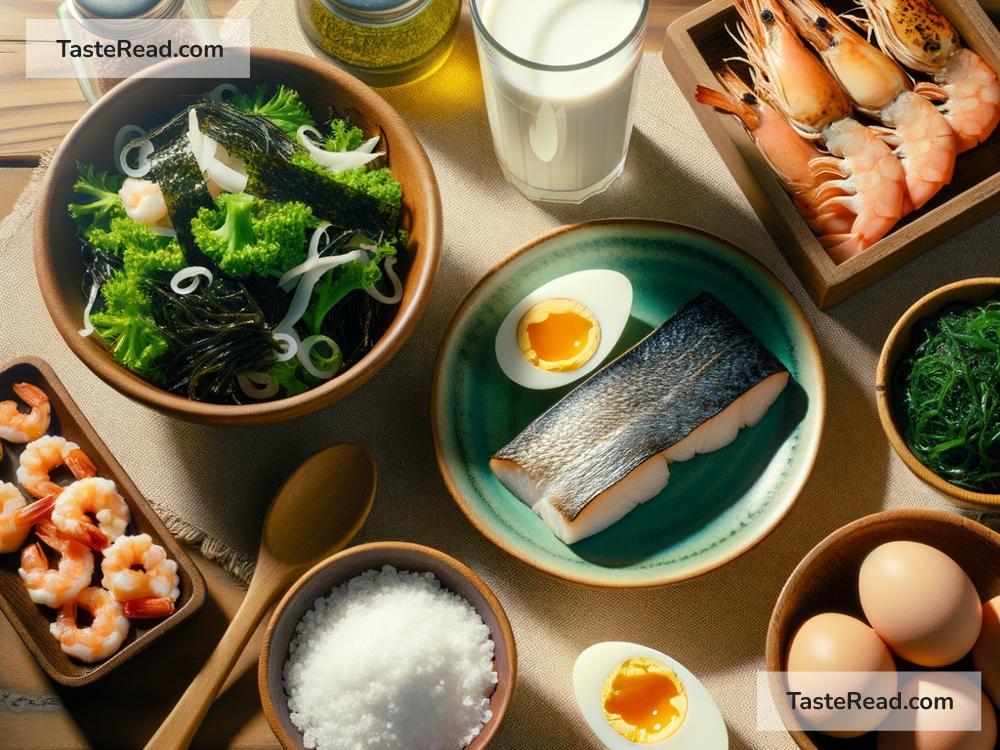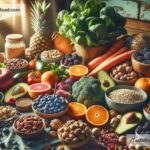Boost Your Iodine: Foods That Help Improve Iodine Levels
Iodine is a trace mineral that’s essential for your health. It plays a key role in helping your thyroid gland produce hormones that control growth, metabolism, and energy levels. Without enough iodine in your diet, you might suffer from tiredness, weight gain, or even a condition called hypothyroidism. The good news is, there are plenty of tasty foods that can improve your iodine levels. Let’s explore them in simple terms, so you can add more iodine-rich options to your meals.
Why Is Iodine Important?
Before we dive into the foods, let’s understand why iodine is so important. Your thyroid gland, located in your neck, uses iodine to make two crucial hormones: thyroxine (T4) and triiodothyronine (T3). These hormones influence your energy levels, body temperature, and how well your body uses nutrients from food. If you don’t get enough iodine, your thyroid can’t function properly, leading to potential health problems.
The recommended daily amount of iodine varies depending on your age and life stage. Adults generally need 150 micrograms per day, while pregnant women require 220–250 micrograms to support their developing baby. Luckily, you can meet most of your iodine needs through smart food choices.
Iodine-Rich Foods You Should Try
Here are some of the best foods for improving your iodine levels:
1. Seaweed
Seaweed is one of the most iodine-rich foods on the planet. Varieties like kelp, nori, and wakame pack a powerful punch when it comes to boosting your iodine levels. Just one tablespoon of dried kelp can provide more iodine than your daily requirement!
If you’re new to eating seaweed, try adding sheets of nori to sushi rolls or sprinkling dried seaweed flakes onto soups and salads. Be cautious not to overdo it, though—too much iodine can also be harmful.
2. Fish and Seafood
Fish and other seafood are excellent sources of iodine. Options like cod, tuna, shrimp, and shellfish are rich in this important mineral. For instance, baked cod contains around 99 micrograms of iodine per serving, which is almost two-thirds of your daily needs.
Beyond iodine, seafood is also full of heart-healthy omega-3 fatty acids, making it a smart addition to your diet. To maximize its health benefits, opt for baked, steamed, or grilled seafood rather than fried.
3. Dairy Products
Milk, yogurt, and cheese are surprisingly good sources of iodine. Cows get iodine from their feed and supplements, and it makes its way into dairy products. For example, one cup of milk contains roughly 56 micrograms of iodine, or about 37% of your daily needs.
Plain yogurt is another great choice—it’s not only rich in iodine but also packed with probiotics that support your gut health. Have a bowl of yogurt with fresh fruit for a healthy breakfast or snack.
4. Eggs
Eggs are a handy and affordable source of iodine, especially the yolk. One large egg contains about 24 micrograms of iodine, which accounts for 16% of your daily intake. Eggs are also packed with protein, vitamins, and minerals, making them a superfood for your overall health.
Enjoy eggs boiled, scrambled, or mixed in recipes. They’re versatile and easy to include in your diet.
5. Iodized Salt
Perhaps the simplest way to improve your iodine intake is by using iodized salt. Many countries fortify table salt with iodine to help prevent deficiencies. A small pinch of iodized salt in your cooking can give your dishes a flavor boost while ensuring you get some iodine, too.
Just remember to use salt in moderation, as too much sodium can lead to health issues like high blood pressure.
6. Fruits and Vegetables
While fruits and vegetables aren’t the richest sources of iodine, some contain small amounts that can contribute to your daily intake. Strawberries, cranberries, potatoes, and green beans all have iodine in varying degrees.
For an added benefit, enjoy these foods alongside iodine-heavy meals to create balanced, nutrient-packed plates.
Special Notes for Vegans and Vegetarians
If you follow a vegan or vegetarian lifestyle, it’s important to focus on plant-based iodine sources like seaweed, potatoes, and iodized salt. You might also consider taking an iodine supplement, especially if you struggle to get enough iodine from food. Always consult your doctor before starting any supplements to avoid overconsumption.
Signs of Iodine Deficiency
If you’re not getting enough iodine, you might notice symptoms like:
- Feeling tired or weak
- Gaining weight unexpectedly
- Dry skin and hair loss
- Feeling cold even in warm temperatures
- Swelling in your neck (goiter)
These signs could indicate that your thyroid isn’t functioning properly, and it’s crucial to consult a doctor for a diagnosis.
Conclusion
Iodine is a vital mineral that you may not think about every day, but it’s crucial for your energy, metabolism, and thyroid health. Luckily, getting enough iodine is as simple as choosing the right foods. Whether you enjoy seaweed, seafood, eggs, dairy, or iodized salt, there are plenty of tasty options to help you meet your needs.
By making conscious choices at mealtime, you can easily boost your iodine levels and keep your body working at its best. So go ahead and add these iodine-rich foods to your plate—you’ll thank yourself later!


